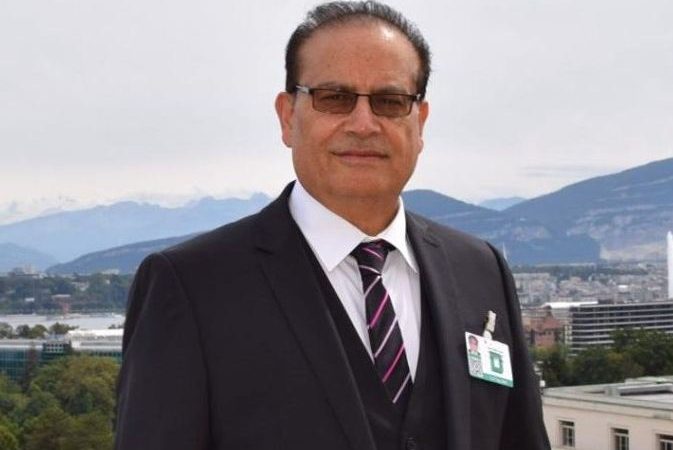Election 2024: Navigating Political Turbulence

By: Qamar Bashir
Pakistan’s economic and financial turmoil persisted, despite stabilization efforts of the post-PTI government. The 2024 elections, instead of heralding stability, resulted in a split mandate, leaving no party capable of forming a strong government. This division has plunged the political landscape into chaos, surpassing current leadership’s ability to manage. Consequently, it’s been decided to temporarily take control to stabilize the nation economically and financially. Post-achievement of these goals, new elections will be called, offering the people another chance to elect a decisive government. This could be the text of the speech of the new martial law administrator, if we had some ambitious chief of army staff in the country.
But nonetheless, the establishment, blaming civilian bureaucracy inefficient, sluggish and lacking discipline and innovation have taken control of important institutions of the country directly and indirectly. This is general perception, irrespective of right or wrong, that the establishment’s influence extends to significant civilian roles and decision-making processes, indicating a hybrid governance system where the lines between military and civilian domains are blurred.
The overwhelming victory of PTI in the 2024 elections, as interpreted by a prominent anchor, was seen not merely as a win for PTI or a loss for its competitors, but as a significant statement against the establishment. This perspective stems from the alleged hardships faced by PTI leaders, supporters, and the broader voter base, including attempts to undermine the party’s former Chairman, his close allies, and the extensive network of its supporters. The anchor’s comments highlight a public sentiment seeking accountability and change, reflecting a collective pushback against perceived injustices and the desire for a more equitable political landscape.
The anchor’s analysis suggests that the establishment’s efforts to suppress PTI not only failed but also backfired, exacerbating the situation rather than resolving it. This persistence in employing the same failed strategies to overturn the people’s mandate for PTI underscores a lack of adaptability and learning from past mistakes. He invoked a well-known adage to emphasize his point: when power fails to resolve an issue, the establishment’s instinct is often to double down and apply even more force, leading to more significant failures. This cycle of using power ineffectively, rather than seeking alternative solutions or reevaluating strategies, highlights a critical flaw in handling crises and challenges, ultimately resulting in greater setbacks.
The anchor posited that the ongoing conflict transcends a mere confrontation between the establishment and PTI or its leadership; it has escalated into a direct clash between the establishment and the Pakistani populace. This scenario is particularly alarming given historical precedents of unrest, such as the turmoil in Sindh following the assassination of Benazir Bhutto, the enduring insurgency in Balochistan, and the sense of alienation in KP. Punjab, traditionally seen as aligned with the establishment, has also been alienated.
The anchorperson highlighted the gravity of the situation, urging the establishment to reconsider its involvement in political matters and allow for a return to normalcy by stepping back from political interference. This call for a hands-off approach emphasizes the need for the political process to unfold naturally, without external manipulation. The critique extends to the harsh treatment of PTI leaders, including the incarceration of Imran Khan in multiple cases, which, according to PML(N) Punjab President Rana Sanaullah, played a significant role in PTI’s surprising electoral success. This scenario underscores a critical moment for the country’s governance, advocating for a reevaluation of the establishment’s role in politics to foster a more democratic and unimpeded political environment.
Political analysts are speculating that the same aggressive measures previously employed to coerce key figures and allies of Imran Khan into leaving PTI—prompting some to exit politics or join the newly established IPP—are now being applied to pressure elected candidates associated with PTI, despite their unique election symbols, to switch allegiance to PML(N). This strategy aims to consolidate PML(N)’s strength, ensuring it secures the majority needed to form governments both at the center and in Punjab, thereby reshaping the political landscape to its advantage.
Analysts are highlighting instances where Independents, once affiliated with PTI, are now aligning with PML(N), exemplified by Wasim Qadir’s recent shift. This move has been notably endorsed by Maryam Nawaz given her previous condemnations of political defections and horse trading, underscoring a complex political landscape where allegiances are fluid and often contradict previous stances against such practices.
Sardar Latif Khosa vehemently criticized Wasim Qadir’s switch to PML(N) as “shameless, heinous, and disgusting,” cautioning him about potential severe legal repercussions and voter backlash. Khosa underscored that Qadir’s election victory stemmed not from his own credentials but from his association with Imran Khan, implying that voters’ loyalty was to the party and its leadership rather than to individual candidates.
Sardar Latif Khosa highlighted significant risks, both political and economic, if PTI, which, according to Form-45, holds a majority in the national and Punjab assemblies, is barred from forming a government. He emphasized that any loss of faith in the electoral process could drive the populace to seek alternative means of expressing their discontent, frustration, and distress.
Sardar Latif Khosa made it clear that if the state continues to obstruct PTI from forming the government, PTI would opt to be the opposition rather than exiting the assemblies. He affirmed that PTI intends to vigorously pursue its agenda from this position while simultaneously employing every constitutional, legal, and political avenue available to reclaim the seats it alleges were unjustly taken.
Should PTI be denied its rightful representation, the nation could plunge into severe political turmoil, further exacerbating the fragile economic situation. In such a scenario, forming a government might only be feasible through a PML(N) and PPP alliance. However, this coalition could lead the country into another predicament due to the stark differences in their ideologies, visions, and governance approaches. Such an alliance, with each party pulling in different directions, could result in a weak and ineffective government, unable to implement the necessary and tough decisions required to steer the country back on a path of stability and growth.
A coalition between PML(N) and PPP, reminiscent of their brief alliance in 2009, may face inherent instability due to their contrasting political ideologies and governance styles. Such an arrangement, potentially more tenable under Shahbaz Sharif’s leadership, could still falter quickly, especially if Nawaz Sharif takes the helm.
This precarious political landscape does not bode well for the parties involved, the nation, or its citizens. Instead, it could inadvertently serve the interests of the establishment, enabling it to further entrench its influence over critical state institutions. This dominance allows for easier manipulation of the state’s foundational pillars and the indirect imposition of its agenda, maintaining control while appearing to remain in the background.
The evolving political narrative of Pakistan post-Election 2024 underscores a pivotal moment in its democratic journey. Amidst the turmoil, a stark reminder emerges: the essence of democracy lies in the will of its people and the integrity of its institutions. The current impasse, marked by allegations of manipulation, defections, and the establishment’s overreach, not only tests the resilience of Pakistan’s political fabric but also presents an opportunity for introspection and reform. For a nation to thrive, it must foster an environment where political discourse is driven by policy, not power plays; where governance is inclusive, not coerced; and where the voices of its citizens shape its destiny. As Pakistan stands at this crossroads, the path it chooses will not only define its democratic credentials but also its legacy in the annals of history.
By: Qamar Bashir
Press Secretary to the President(Rtd), Former Press Minister at Embassy of Pakistan to France, Former MD, SRBC
Related News

Tucker Carlson’s Revolt Against America’s Israel Policy
Qamar Bashir If there is one American media figure who has done more than anyRead More

Water as a Weapon: The New Frontier of an Old Conflict
by Muhammad Mohsin Iqbal The tragedy of the Sub Continent did not conclude with theRead More


Comments are Closed